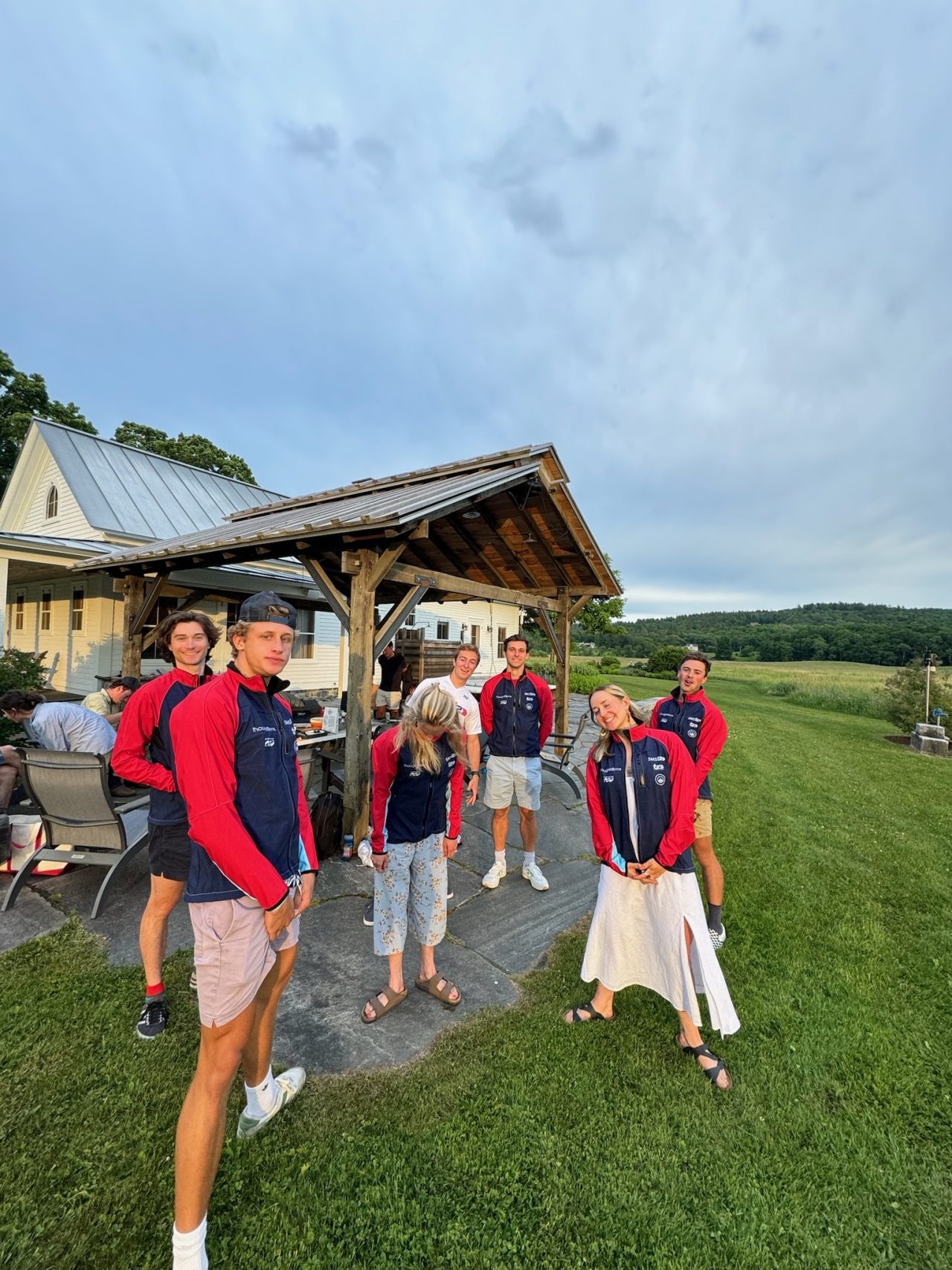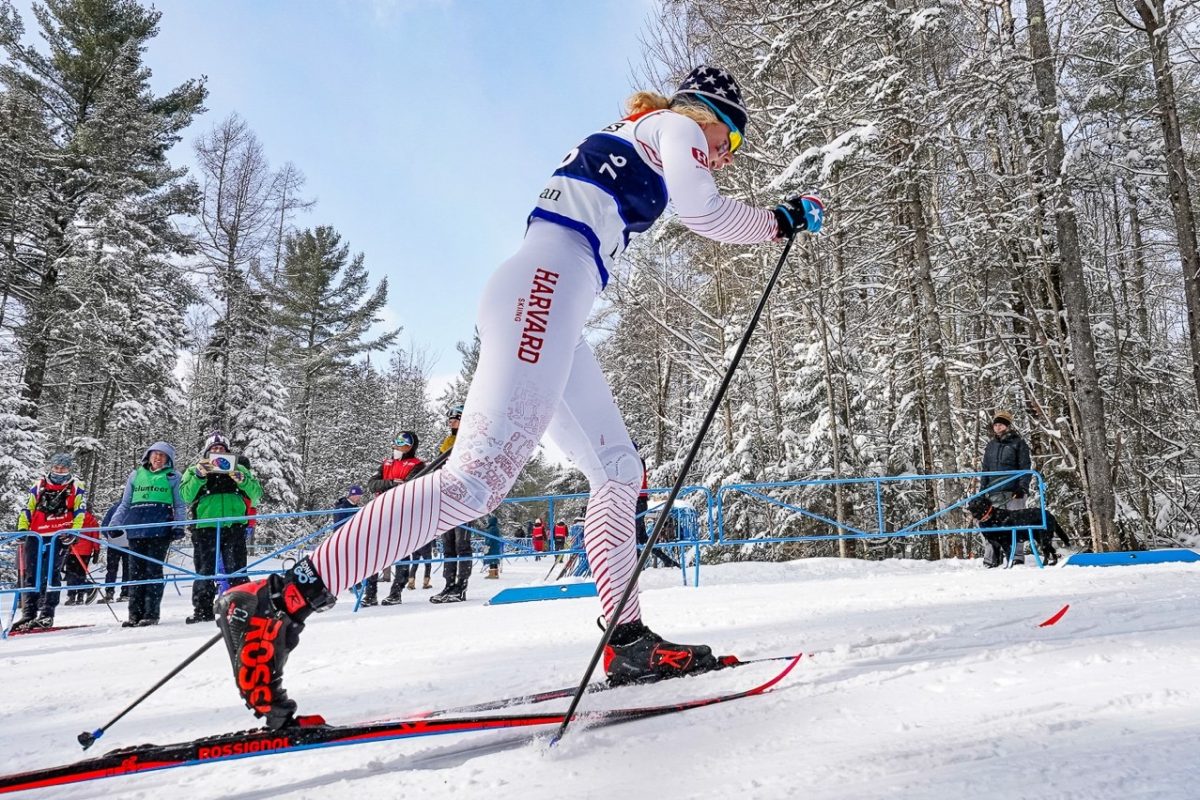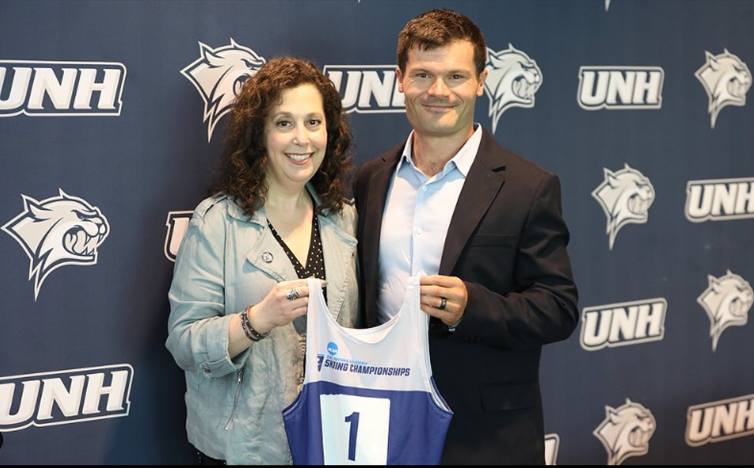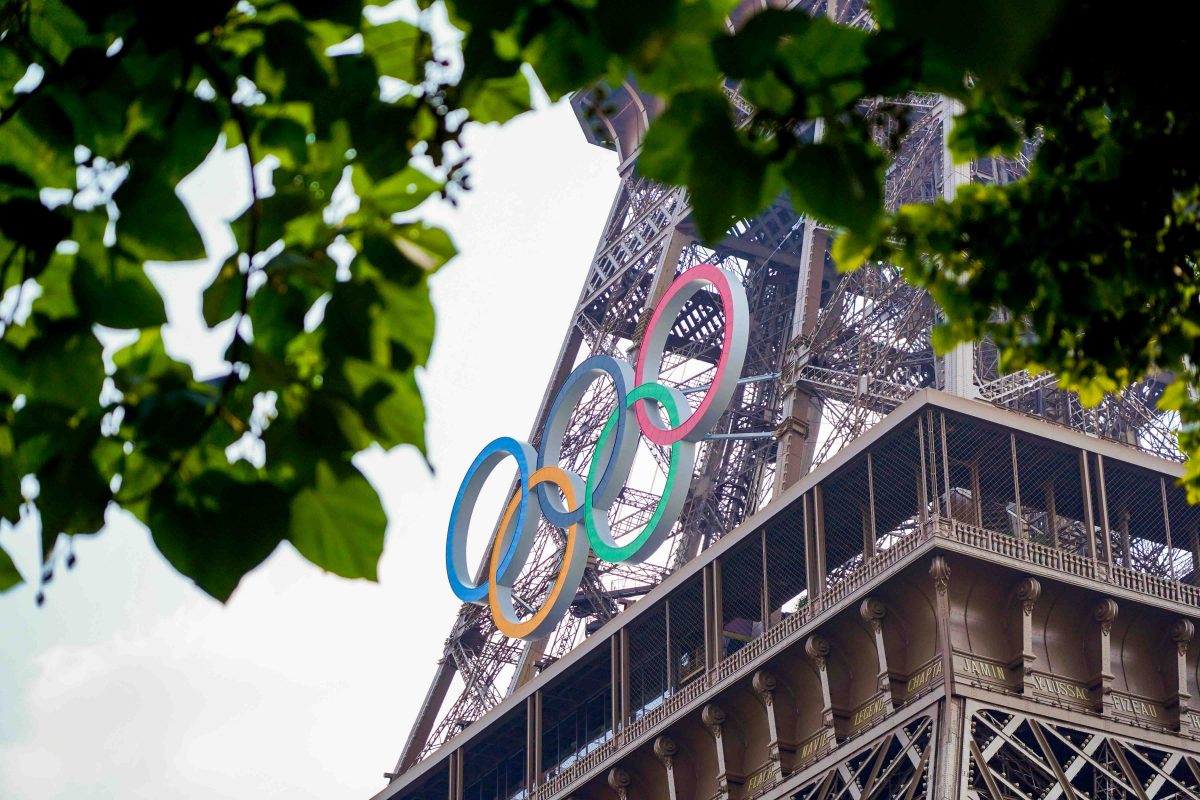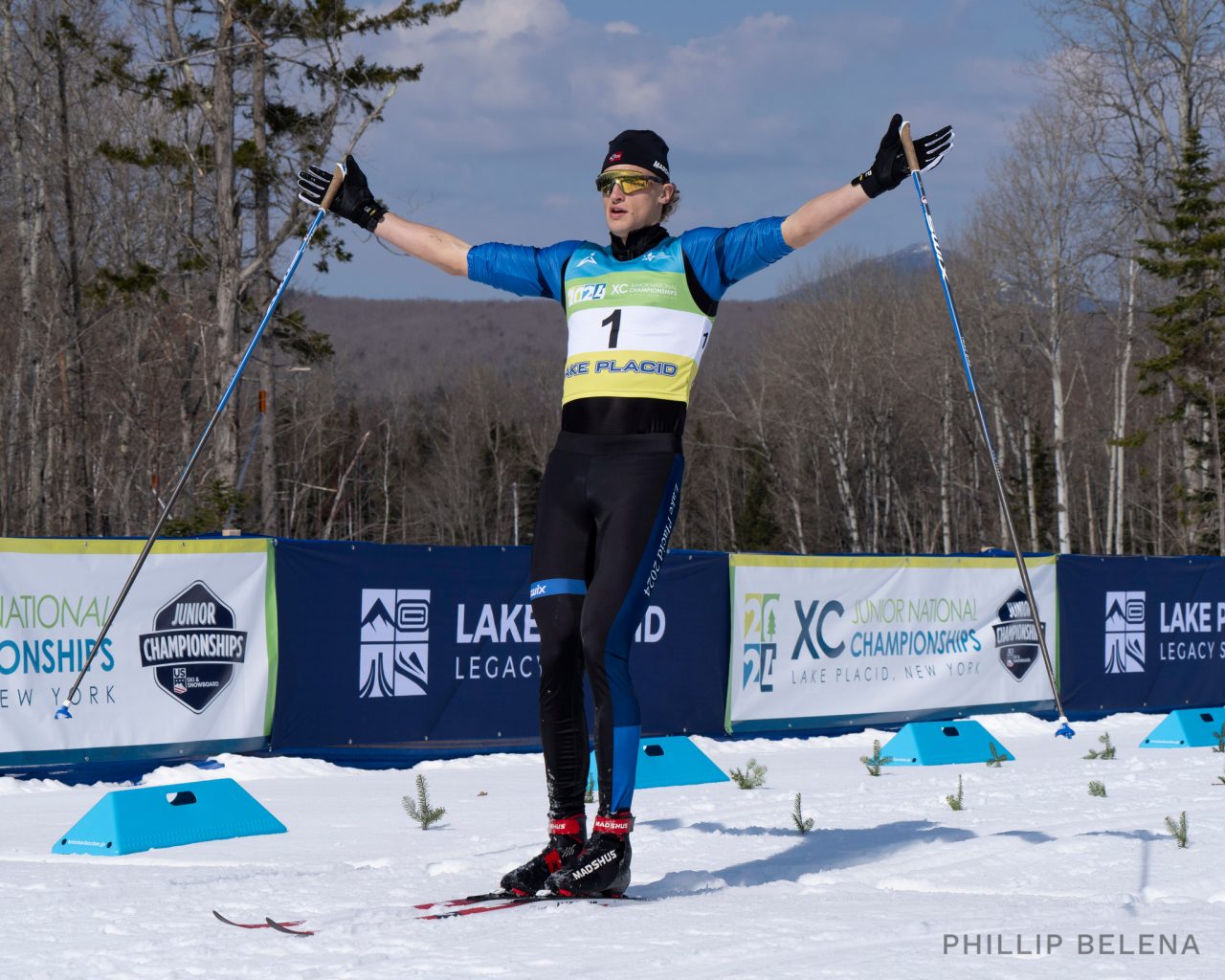
New England’s Fin Bailey (SMST2 / University of Vermont) won his third consecutive JNs sprint title in the U20 Boys race. (Photo: Philip Belena)
Finnegan Bailey—a resident of Landgrove, Vermont, and team member of SMST2 and the University of Vermont—was selected this spring to become one of the newest members of the Stifel U.S. Ski Team at the staggering age of 18. So how’d he do it?
In the last twelve months, Finnegan (Fin) Bailey has received quite the accolades in the competitive nordic skiing scene. To name a few: he was named to the SMST2 club team, he won his first Super Tour race and he demolished the field at the 2024 Junior Nationals U20 sprints. So it’s no surprise that Fin was amongst the latest batch of rising athletes selected to the Stifel U.S. Ski Team. While technically it’s this last year’s performances that led to Bailey’s selection, his journey to the top level of American skiing is a lifetime in the making, and it’s been filled with highs, lows, and lessons.
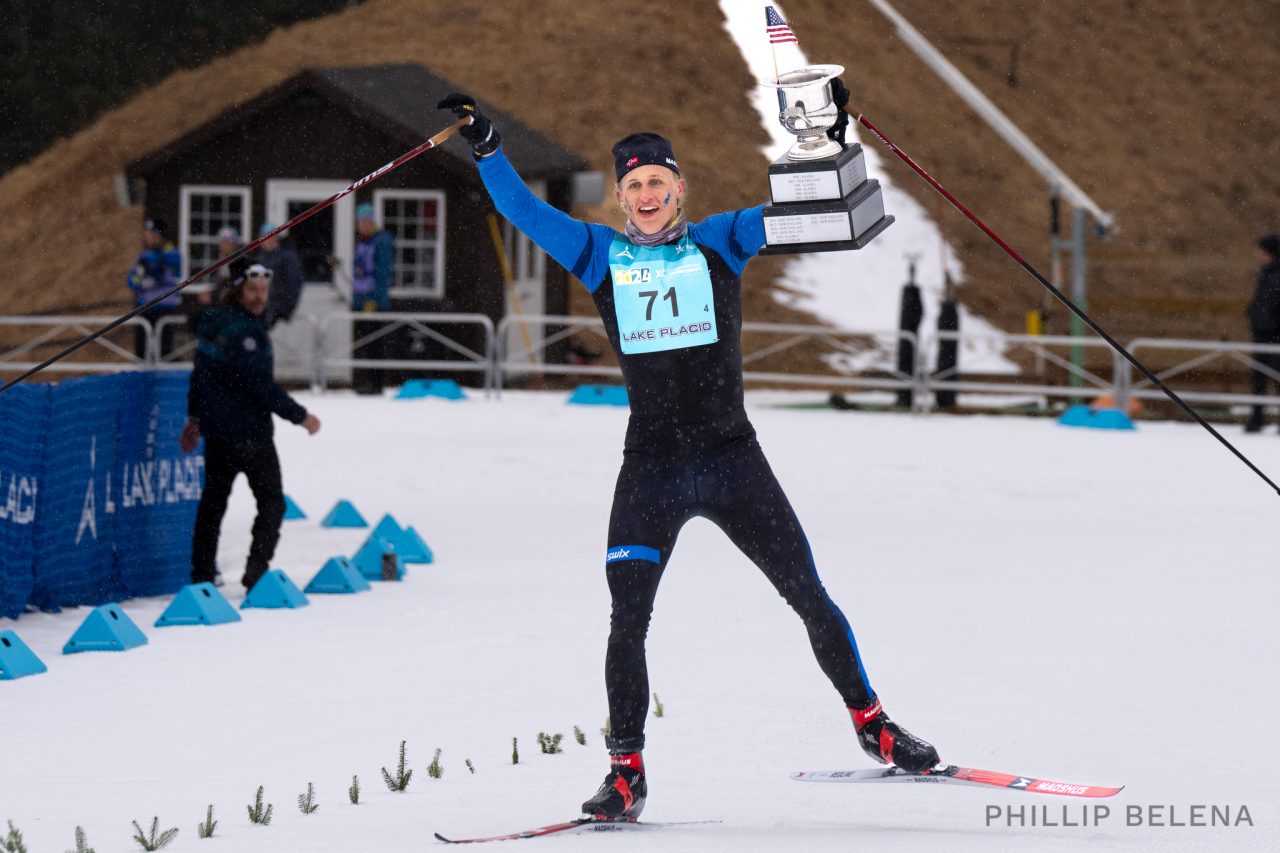
Fin’s father Jack is an alpine ski coach, so his exposure to snow sports didn’t begin on nordic skis. He started skiing at the age of two—alpine, that is—before exploring the nordic world a year or two later. And he played other sports, too.
“I played both soccer and baseball quite competitively. I’ve played baseball since fourth grade, and I love it. I also played soccer all through my time at Stratton,” Bailey said. Through last spring, Fin was a competing tri-sport athlete, and “pretty happy that [he] wasn’t solely focused on Nordic…because (he) doesn’t think that’s the best way to do it.” During their respective seasons, Bailey said he was “a lot more focused” on those sports than he was on skiing.
Still, despite his diverse athletic experience it’s no secret that time on skis is a key ingredient to success, Bailey had plenty of it. But forget specific speed or endurance training: Bailey largely spent his time on skis having fun “jibbing.” What’s jibbing? It can essentially be defined as hitting makeshift jumps and rails and doing things on nordic skis that aren’t meant to be done on nordic skis. (Technically, there was one pair of nordic skis made with jibbing in mind — the discontinued Fischer Jibskates — but they were the exception rather than the rule.)
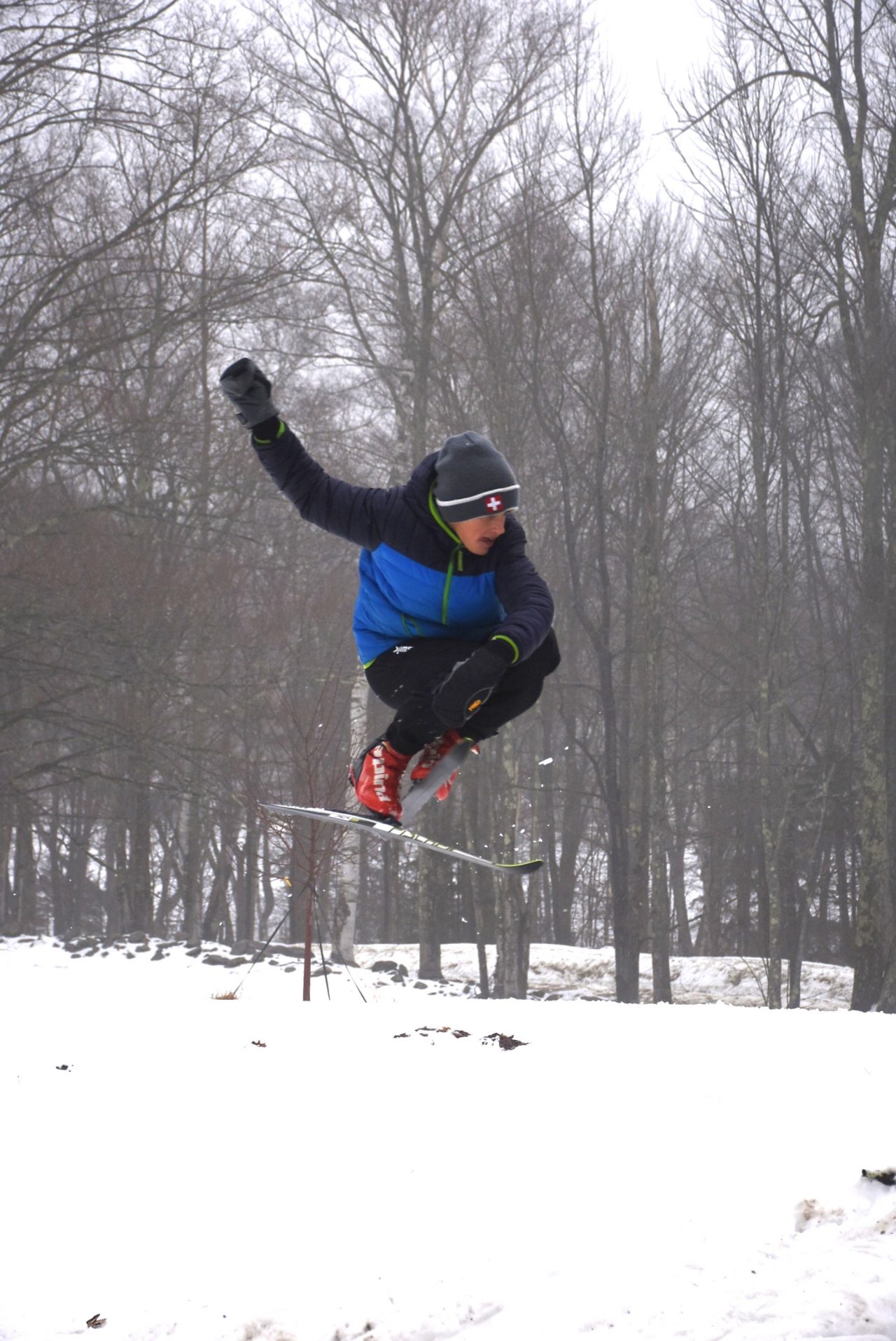
Asked how his “jibbing career” impacted his success on skis, Bailey lit up. “That’s huge! That’s all I remember and it’s how I started,” he said. Fin skied for a ski club in the Bill Koch League (BKL) called West River up through the end of elementary school, and following every BKL race — which he’d typically have won — Fin could be found handling the more important business of building and hitting massive jumps, throwing impressive grabs, spins, and even backflips. He credits his ability to move on skis largely to his youthful jibbing career.
As he moved into the later years of elementary school, Fin, along with his group of friends dubbed “The Peru Crew” — Fin and his friends Wyatt Teaford, who skis for Bates College, and Chip Freeman, who skis for Williams College — began to take skiing and training more seriously under the tutelage of Vermont coaching legend Sverre Caldwell.
“The way he got me into nordic skiing was probably the best way I could have been introduced to it,” Bailey said. He credits Caldwell for guiding him from one step on his pathway to the next. Caldwell broadened his horizons from a passionate jibber into a more multi-dimensional skier who could have just as much fun in rollerski agility sessions that mixed “training” with the fun of jibbing. These sessions were also the first exposure that Bailey had to training alongside the Stratton teams. With Caldwell’s guidance, Bailey began climbing SMS’s ladder of programs, from winter-term all the way up to SMST2. Caldwell’s influence, he said, was huge.
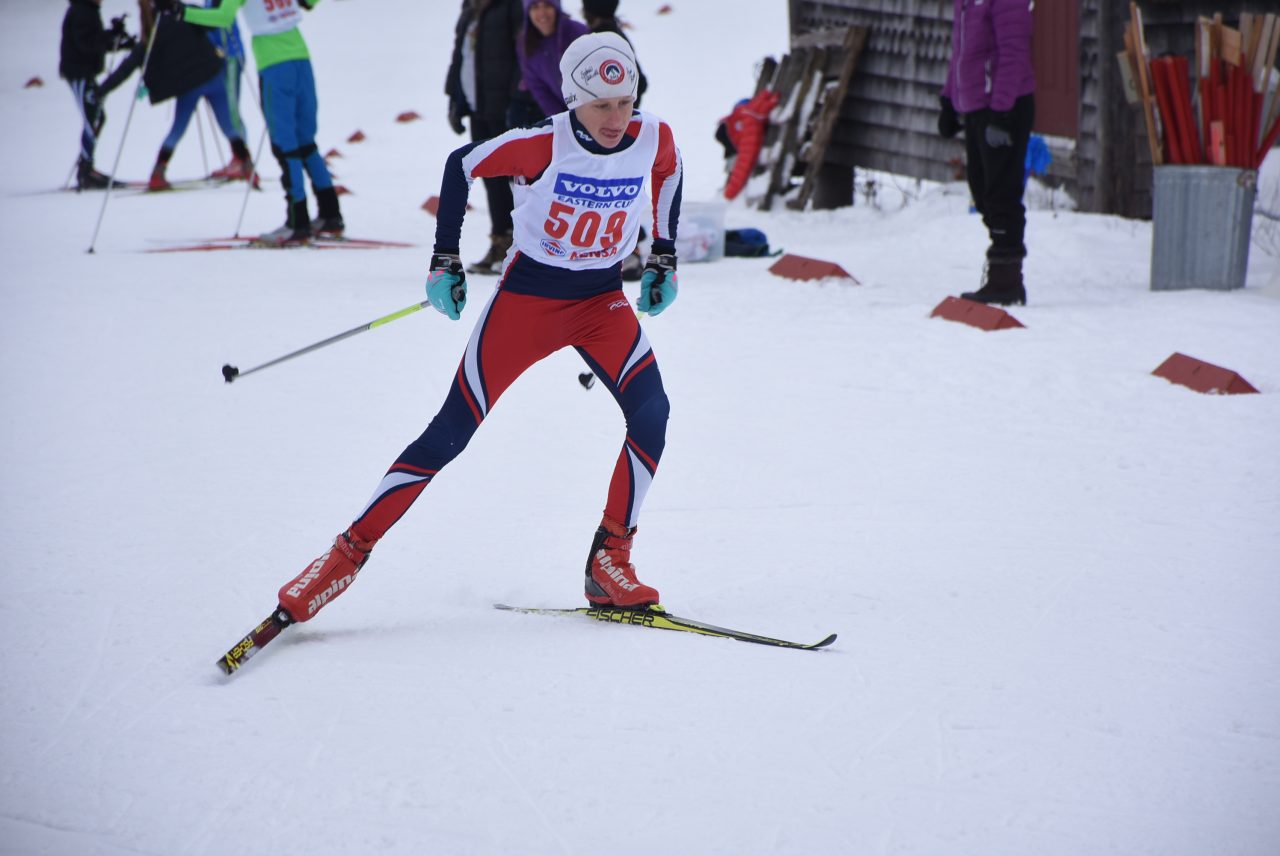
“There was no forcing or anything like that. He truly guided me into the SMS team.”
When Bailey arrived at the Stratton Mountain School, he kept a wide array of athletic interests but gradually became more serious about a future in skiing. He began to focus on training year round, and with this shift in mentality, his goals shifted beyond an aerial career and towards making it, as he remembers, “as far as I can.”
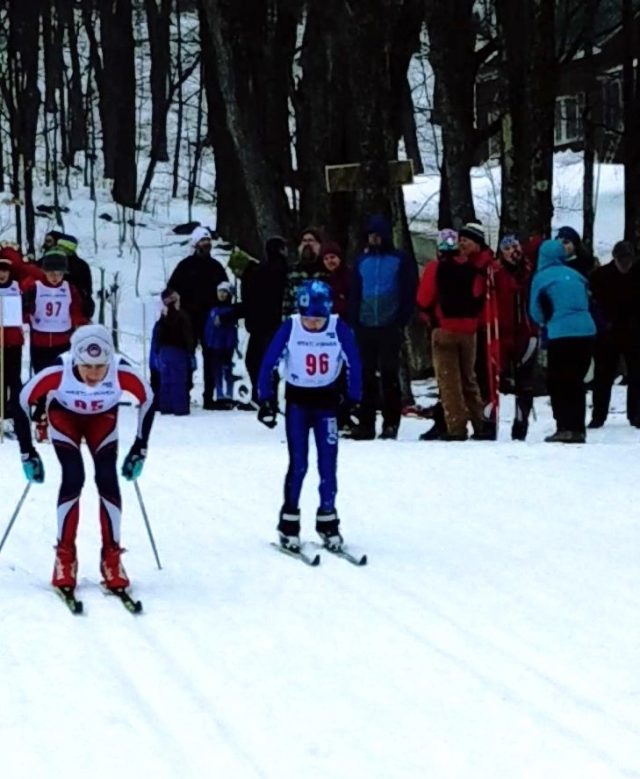
Fin describes himself as a “hugely competitive” person, among other things, so it is no surprise that he aspired to the next level. But he was also exposed to that level early on, thanks to his upbringing in the stomping grounds of some of the best American nordic skiers of all time. During his time at West River and during the coined “Sverre agility sessions,” he found himself surrounded by the likes of Simi Hamilton and Sophie Caldwell. More recently, during his time at SMS and later on SMST2, Fin has had the opportunity to train with Jesse Diggins, Ben Ogden, and Julia Kern, among other massive names in American skiing.
If they served as Bailey’s inspiration, it was largely subconscious.
“I think I probably took it for granted,” he said. It would really only hit him when he’d take a step back and think, “Wow! I’m training behind Jessie or Ben.” But mostly it was just normal. Bailey does acknowledge that just being around professional skiers was massively influential in his development as a skier.
“Even if you aren’t thinking about it, you’re looking at what they do, watching their technique. Even if you aren’t trying to, it’s just that when you look up to somebody like [I do], it’s natural. So, I think that without even thinking about it, just being around them made me better, my technique a lot better, and me a lot more invested in the sport.”
As he gains a greater understanding of the influence that high-level skiers have had on him, Bailey understands his own impact more, too, and wants to emphasize to younger, aspiring athletes the value of using knowledgeable, experienced, and more established (while still cool) skiers like himself as a resource.
“I think that it’s just great to reach out to anybody. Jessie and Ben and Julia—they’re so easy to talk to and they love sharing their experience,” he said. “Everybody loves talking about themselves and what they know.” Still, he stressed that young athletes should trust their instincts, too. “Find what works for you, but you can base that off of what the more professional athletes do.”
Bailey also made sure to note that even pros still have lessons to learn when asked about his skiing idol. His answer was Dartmouth junior Jack Lange, a teammate of his this summer as well as at SMS for a few years prior. Lange is an incredible distance skier, and splits from a large spread of races will tell you that he tends to get faster and faster throughout races. Bailey, on the contrary, is best known for his sprinting ability, and he made note of a dynamic between them.
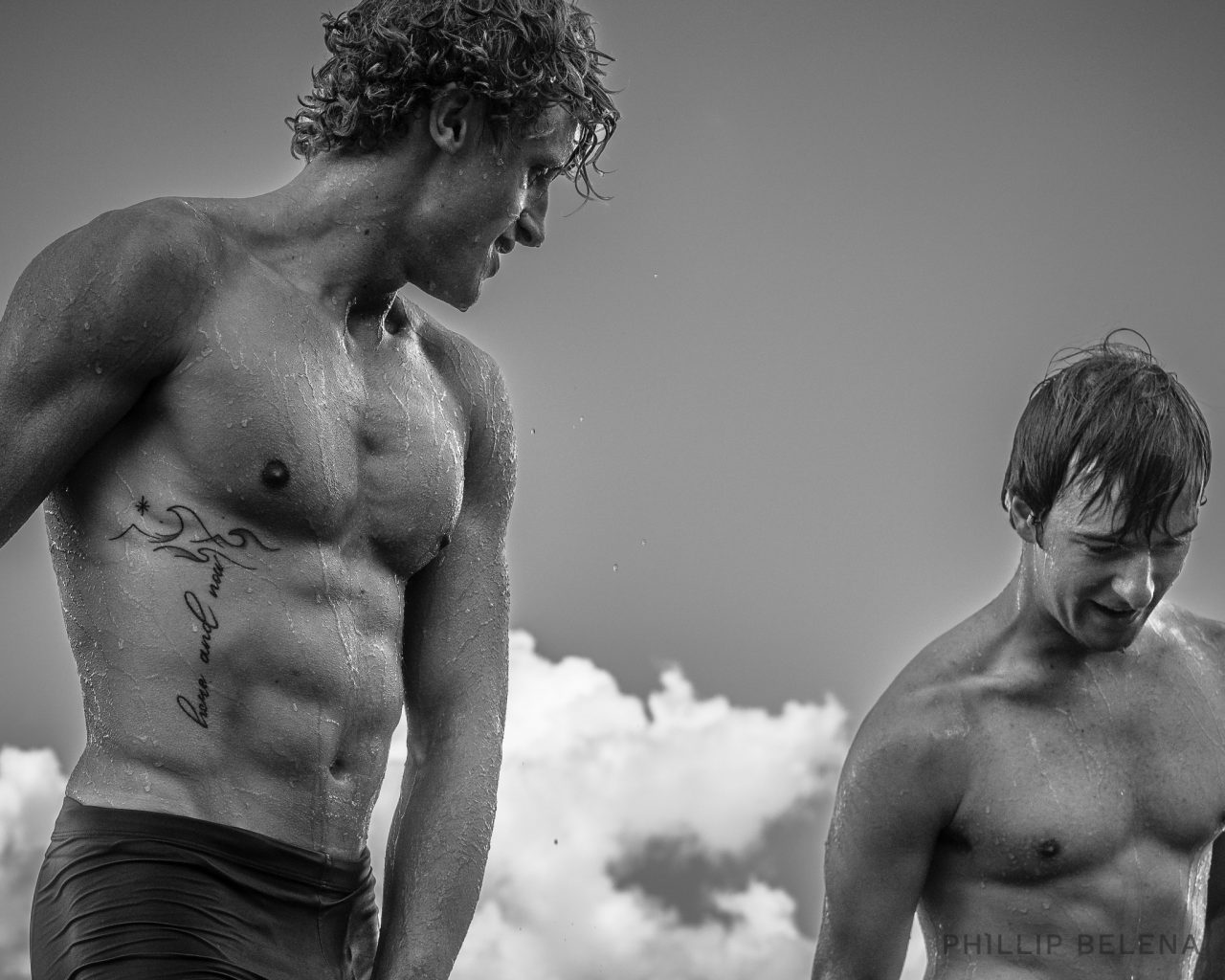
“He gains sprinting knowledge off of me, and I gain distance knowledge off of him.”
Improving his distance skiing prowess is one of Fin’s big goals for the future, especially as he overcomes a strange set-back from over-lifting. Yes, over-lifting is a thing in nordic skiing. “Two years, five-plus days in the gym a week, and I was just way too big to move my body in a 10k or a distance race,” he said. “The gym has been like my safe space… and I’ve had to totally dial it back. I’m now at two times a week in the gym, just to translate that strength that I have now into using it in nordic skiing.”
This, believe it or not, has been “super hard” for Bailey, but as much as he loves the gym, he also understands that “you eventually get to a point where you are building too much muscle, and you don’t necessarily need that for nordic skiing.”
Staying consistent with an interview he gave at Junior Nationals a few years back, Fin also mentioned UNH incoming freshman David Shycon as one of his idols, noting that David is “such a happy kid” and “always himself.” “I love that about him,” Bailey said.
It’s clear that Fin has done a lot right. What’s the one thing he feels he’s done exceptionally well in developing as a skier? As it turns out, it has nothing to do with training or nutrition.
“I think I’ve had fun. I think that’s the biggest thing,” he said.
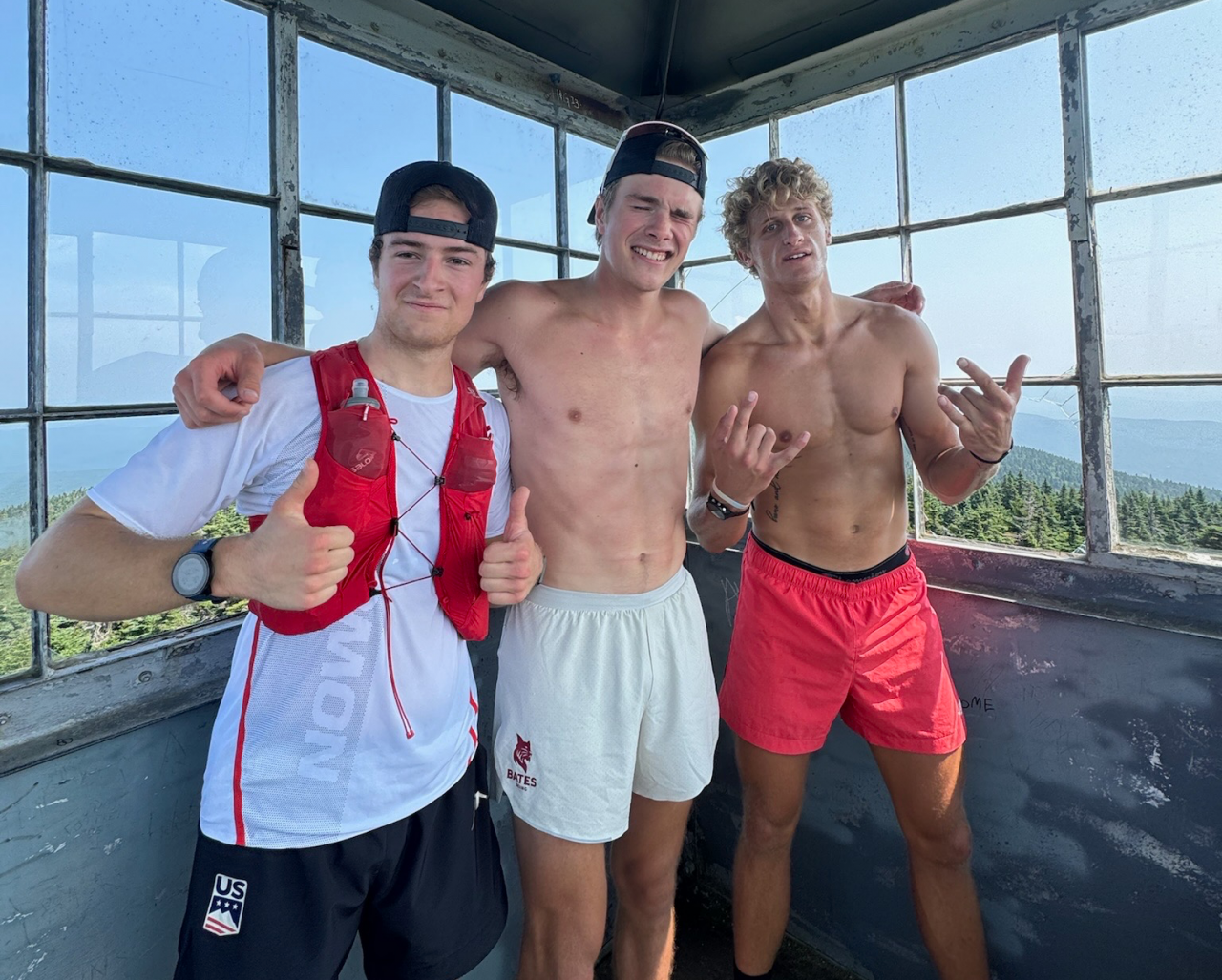
As Bailey heads off to the University of Vermont in the fall, he hopes that this next year skiing on the EISA circuit will mark another step in his competitive skiing progression. But he understands that there is more to life than just skiing. “Making the [US] Ski Team this year has been a pretty good step,” he said. “If I keep going, that’s great. If not, that’s also great.” He’s looking forward to everything else college has to offer; Bailey is going into the academic scene undecided but would love to get into some sort of study in sports physiology. And he has really enjoyed playing around with photography and media.
But come wintertime weekends it’ll be worth watching out for Bailey in the black, green, and yellow of UVM this Winter. Most of his competition might just be watching from behind.
